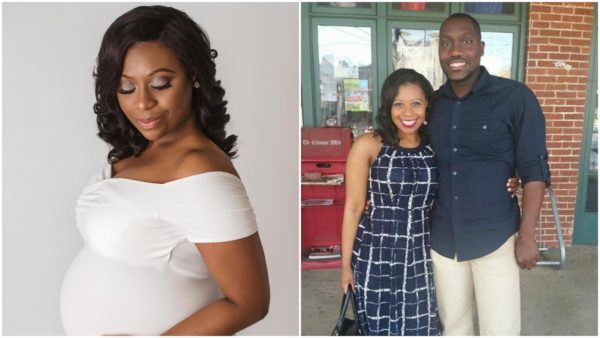‘We’re Not Magical … We’re Human Beings’: Higher Pain Tolerance, Stronger Immune Systems Among Harmful Misconceptions About Black Patients, Black Physicians Say
Dr. Susan Moore looked into the camera last month and delivered an impassioned testimony that sounded the alarm to medical racism.
It was essentially a message from her death bed, one that sent shock waves rippling across the global medical community, particularly amongst Black health care practitioners.
Moore died less than two weeks after recording herself from her Indiana hospital room. Her pleas for adequate care, pleas that ultimately failed her, highlighted a paradox of the medical profession.
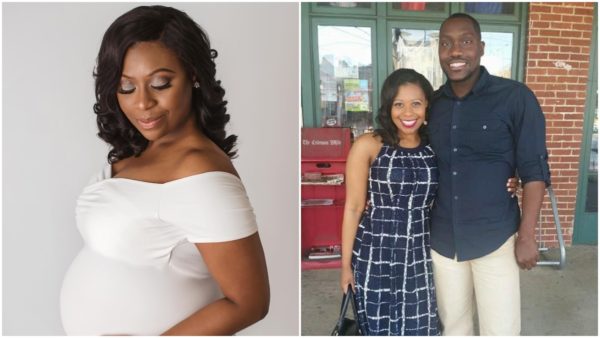
A set of false notions about Black patients is deeply woven into the fabric of the health care industry. From thicker skin to higher pain thresholds, many doctors are trained to believe Black bodies are biologically different — and often stronger — than their white counterparts.
A 2016 University of Virginia study revealed that 50 percent of medical students endorsed at least one false belief about biological differences between Black and white patients. Among the myths are Blacks have less nerve endings or stronger immune systems.
Researchers suggest the misconceptions are antiquated holdovers from the slave trade, propaganda pushed by physicians of the 19th century to justify the inhumane treatment of African captives.
Whatever the case, they continue to play a role in health care today, setting a precedent for implicit racial bias that can impact how Black patients are treated in 2021.
Black children treated for appendicitis often have a harder time getting pain medication than white children. Similarly, Black cancer patients tend to fare worse than Caucasians in the same condition in terms of pain treatment, studies show.
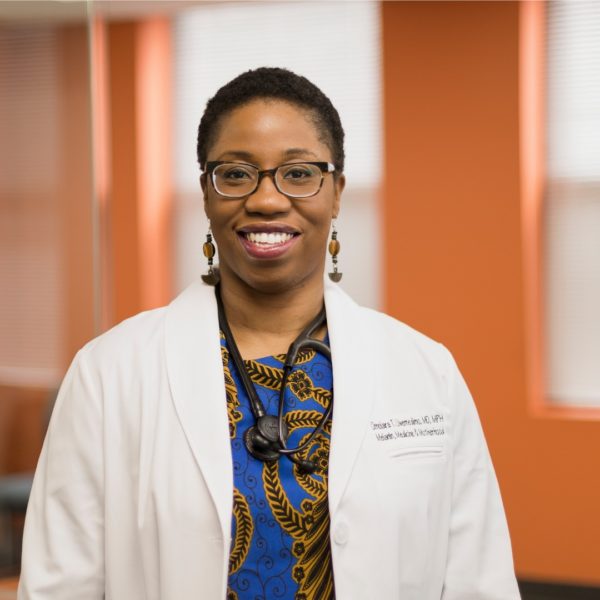
Uwemedimo’s clinic in Jamaica, Queens, serves a predominantly Black and Hispanic, largely immigrant community in New York City. She said Black people face multiple barriers in getting proper care. Everything from finances to insurance and lack of transportation can serve as obstacles.
Susan Moore had no problem clearing those hurdles when she was admitted to IU Health North Hospital in Carmel, Indiana, on Nov. 29 after testing positive for COVID-19. It wasn’t until she got to the hospital that she had a hard time accessing care she needed, according to a self-recorded video Moore posted to Facebook page from her hospital bed on Dec. 4.
A 52-year-old Indianapolis internist, Moore complained that her doctor, Eric Bannec, refused to prescribe medication to relieve her “intense pain,” and tried to send her home early, while the virus was still coursing through her body.
When Moore was discharged Dec. 7, her health deteriorated quickly, forcing her to be re-admitted into a different hospital. She died from COVID-19 on Dec. 20.
News of Moore’s death spread nationally in the wake of her death and the video Dec. 4 video was spread widely on social media.
Uwemedimo, who is Nigerian, was among the myriad of Black physicians who spoke out and said she was angered by Moore’s treatment. She suffers from a auto-immune disorder and said she identified with Moore’s plight because she’s been treated similarly during hospital stints, indicating she was denied pain meds and had to forcefully advocate for herself.
“I got out alive; she did not,” Uwemedimo said. “I just want people to believe us. Like when we’re in pain, believe us. Respect us as human beings, not just Black girls. We’re not magical, we’re not unicorns. We’re human beings, respect us.”
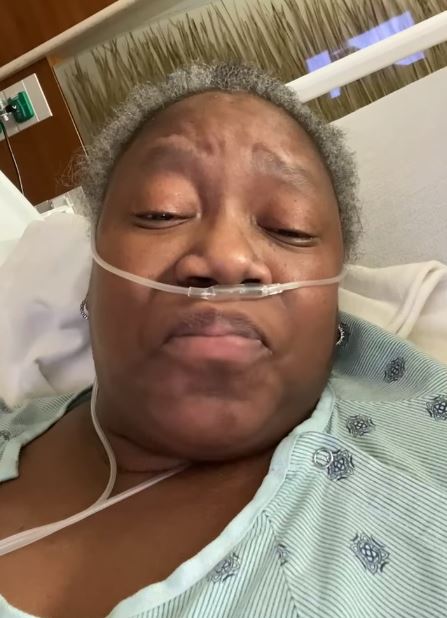
Dr. Carmen Brown, who’s been an obstetrician-gynocologist in Melbourne, Australia, since 2016, said the system was complicit in Dr. Moore’s death. She pointed to the death of Chaniece Wallace, a 30-year-old Black pediatric chief resident who died Oct. 22 just two days after giving birth, as another alarming example of racial disparities in health care.
Wallace died of preeclampsia, a complication of pregnancy that attacks a mother’s organs. She died in the same hospital from which Moore would record her heart-wrenching video seven weeks later.
Black women are three times more likely than white women to die of such pregnancy-related causes, according to the Centers for Disease Control and Prevention. The Black community’s infant mortality rate is twice as high as that of whites.
African-Americans make up 13.4 percent of the U.S. population, according to census numbers. Yet Black doctors make up just 5 percent of the nation’s nearly 920,000 active physicians, according to the Association of American Medical Colleges. Black female doctors represent about 2 percent of that workforce.
Brown said there is a sisterhood amongst Black female physicians worldwide because their are so few of them. She suggested Moore’s death struck a chord in that tightknit community.
“There’s six degrees of separation between most of us. And when something happens to one of us, it happens to all of us,” said Brown, a southwest Atlanta native. “When we found out about her passing, I think it hit all of us extra hard because that just goes to show you that we can’t even protect one of our own. She knows the system inside and out, she knows how to get things done and it still didn’t make a difference. And that was the thing that bothered us the most.”
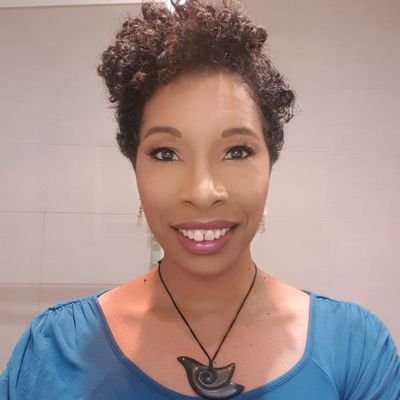
The American medical system, like many of the nation’s institutions, has been marred by the ugly stain of racism.
J. Marion Sims, a 19th-century physician regarded as the “father of modern gynecology,” often used Black slave women as Guinea pigs and performed research on them without anesthesia. Brown cited the Tuskegee experiments, and eugenics programs like the Mississippi appendectomies and North Carolina sterilizations as reasons Black patients have long been leery of the medical establishment.
“The fact that our Black bodies were used for experimentation, and we’re not listened to,” she said. “We were thought of as less than for so long, we don’t trust the system. I think it’s a calling for us as Black physicians that we have to change that narrative and rebuild that trust in the system. But the system is so messed up.”
Brown practiced medicine in New Zealand before moving to Australia. She also spent years as a doctor in the U.S. She said she’s seen the same dynamic in all three countries with disparities in care for indigenous peoples.
“People always say the system is broken,” Brown said. “The system is not broken, it’s doing exactly what it’s designed to do. So what we need to do is tear down and fix it.”
She’s now working with a group of Black doctors to assemble a definitive agenda that would fix the system. One of the changes would be a renewed focus on training to eliminate implicit biases from the world of health care.
“An implicit bias is not saying anything bad about a person,” Brown explained. “It’s just saying that you normally do, as a human being, surround yourself with things of comfort. But you have to go outside of that comfort zone to have empathy and to understand other ways of being. And I think that the problem is, is when people hear implicit bias, they automatically go to the negative aspect, you’re calling me a racist. … But it’s not a bad thing, we all have biases. And if we can admit those biases and see past them, and do our very best to work around those, you’re going to give better care.”

